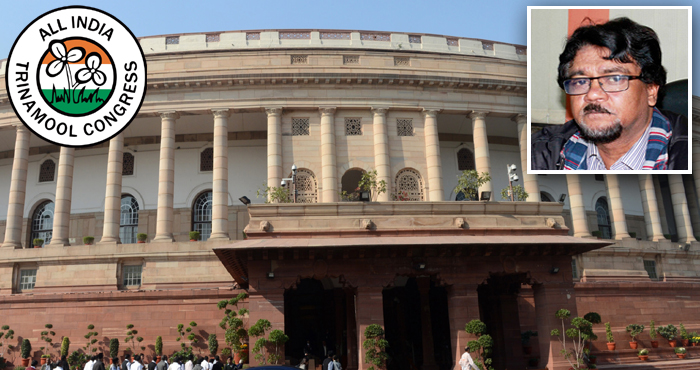Sir, I rise to speak on The Indian Institute of Petroleum and Energy Bill, 2017.
Sir, the Bill seeks to establish a Petroleum and Energy Institute in Vishakhapatnam, Andhra Pradesh. We appreciate the efforts of the Government for undertaking this initiative. The Bill provides the setting up of authorities Board of Governors, the General Council and the Senate. These bodies are in charge of promoting quality education and research in petroleum, energy, oil and energy sectors. This will help to cultivate the culture of research within students.
However, under Section 9(v) of the Bill, the Institute has been conferred with wide powers to lay down standards of admission. I suggest the Government to conduct a uniform examination throughout the country giving due recognition to the needs of separate States. I caution the Government from a second NEET issue affecting the life of students.
Further, the Institute has the right to withdraw degrees, diplomas and other academic distinctions for “good and sufficient reasons.” The Bill does not define these reasons in detail and the phrase is ambiguous. It gives the Institute wide powers to withdraw these distinctions. Such a provision can have grave repercussions on the future of the students.
Another issue in the Bill is the composition of the Governing Council. Sir, the Council looks after the fiscal management of the Institute under Section 16 of the Bill. Among the 20 members, 16 are a part of the the Government. I stand here to urge the Government to raise the representation of eminent experts in petroleum technology and related fields in the energy sector. This will increase the credibility of the Government and bolster trust of the people in its actions.
Along with this, I raise the issue of the appointment of the Director by the Centre. Why can’t the Director be appointed by the State Government? We expect more autonomy to be given to the Institute. The Centre must work in partnership with the States as education is a concurrent subject under the Constitution.
Sir, on behalf of the Trinamool, I take this opportunity to raise other pertinent issues in the energy sector which need to be discussed. Sir, India currently imports around 80% of its fuel. While this Bill seeks to enhance research in the energy sector, the Government must focus its efforts on reducing this fuel dependence from other countries. Sir, volatile prices of crude oil is a major problem for countries. For us, dependence on imports and rising oil prices can adversely impact trade and fiscal balances. Why is the Government not initiating a discussion on this issue?
Sir, India’s energy demand is continuously increasing. The Bill in its sections and the Statement of Objects and Reasons focusses on the renewable energy sector. The Government has set ambitious targets to make India a renewable energy powerhouse.
However, with the implementation of the GST, the renewable sector has been heavily impacted. The cost of Solar Off Grids show a rise of 16-20%, a 12-16% rise in Solar PV Grid Installations, an 11-15% jump in the setting up of wind projects is also expected. Sir, I would like to ask the Government whether setting up of universities will lead to growth in the energy sector?
Sir, as we talk of renewable energy, I am compelled to mention few initiatives taken up by the Trinamool Government in Bengal. Our Government launched India’s first 10MW Canal Bank Solar PV in 2016. The State Government will provide solar power to families in the Sundarbans Delta and other islands. The government is credited with the country’s first battery less, carbon neutral Solar Street Light projects at public parks. There are 10,000 such Solar Street Lights in the State and 2 Lakh Solar Home Lighting Systems. We are in the process of harnessing tidal and other forms of renewable energy within the State. I hope these initiatives serve as a model for other states to follow.
Sir, the energy sector requires human resource formation, more than infrastructure generation in the form of universities. Through you, Sir, I request the Government to come up with training centers for local job construction in the renewable energy sector.
Moreover, sir, the new tax regime has left the oil and gas sector in a fix. While crude, natural gas, petrol is exempted from its coverage; kerosene and LPG are covered under GST. Complying with the previous and the current taxation system will certainly double compliance costs. Sir, due to GST the price of domestic LPG cylinder increased by Rs.26.88 per 14.2 kg. Are these Acche Din?
Sir, recently this Government decided to raise LPG prices in pursuance of finishing subsidy on oil. I urge the Government to pause and think of the 18.12 crore consumers of subsidized LPG cylinders in the country. Sir, due to the roll out of GST, LPG has been put under the 5% slab. Why is this pressing issue being ignored by the Government?
I request the Government to not derail the debate on several of its decisions such as demonetisation and the haphazard implementation of GST as these have had a negative impact on the petroleum and energy sector. And the Trinamool’s opposition to the implementation of these decisions is well known.
Sir, I wish to end my thoughts with an expectation that the Government will pay due attention to the issues mentioned.
Thank you.

